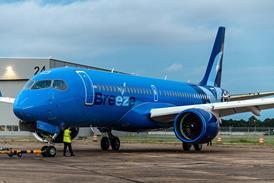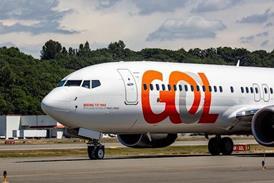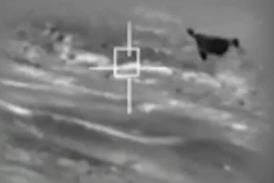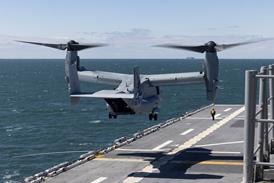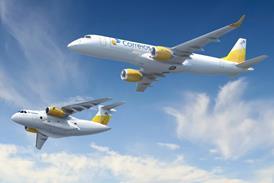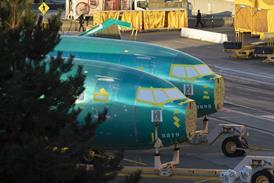Boeing reported a $329 million reach-forward loss on the KC-46 tanker programme to cover the costs of incorporating multiple design changes into the first lot of production aircraft.
The latest charge deepens Boeing’s losses on the fixed-price development and production contracts for the KC-46. Since 2016, Boeing has reported a total of $1.6 billion in reach-forward losses on the engineering manufacturing and development (EMD) and low-rate initial production (LRIP) aircraft.
But Boeing doesn’t expect the additional costs to have an impact on the programme’s schedule. After a previously announced, eight-month delay, the US Air Force expects Boeing to deliver the first 18 KC-46As to Air Mobility Command in the spring next year.
“We have not experienced any new significant technical discoveries,” says Boeing chairman, president and chief executive Dennis Muilenburg. “And we continue to make steady progress closing out technical risk on the path to final certification and to delivering the first 18 tankers next year.”
The reach forward losses in the third quarter included a $256 million charge by Boeing Commercial Aircraft on the 767-2C freighter variant and a $73 million charge by the Defense Space and Security segment, which converts the 767-2C into the KC-46.
In addition to losses over $2 billion since the programme start in 2011, Boeing has received $9.8 billion in combined EMD and LRIP contracts from the USAF. The LRIP awards have added 34 aircraft to Boeing’s 767 backlog.
In the long-term, Boeing believes the losses on the programme will be worth it. The USAF plans to replace hundreds of Boeing KC-135 tankers with as many as 179 KC-46 aircraft with a total estimated value of $30 billion.
“We remain very confident in the long-term value of this franchise,” Muilenburg says.
Boeing has completed 2,000 flight test hours on the KC-46 test fleet, fulfilling 80% of the test points required to achieve military certification, Muilenburg says.
Source: FlightGlobal.com


